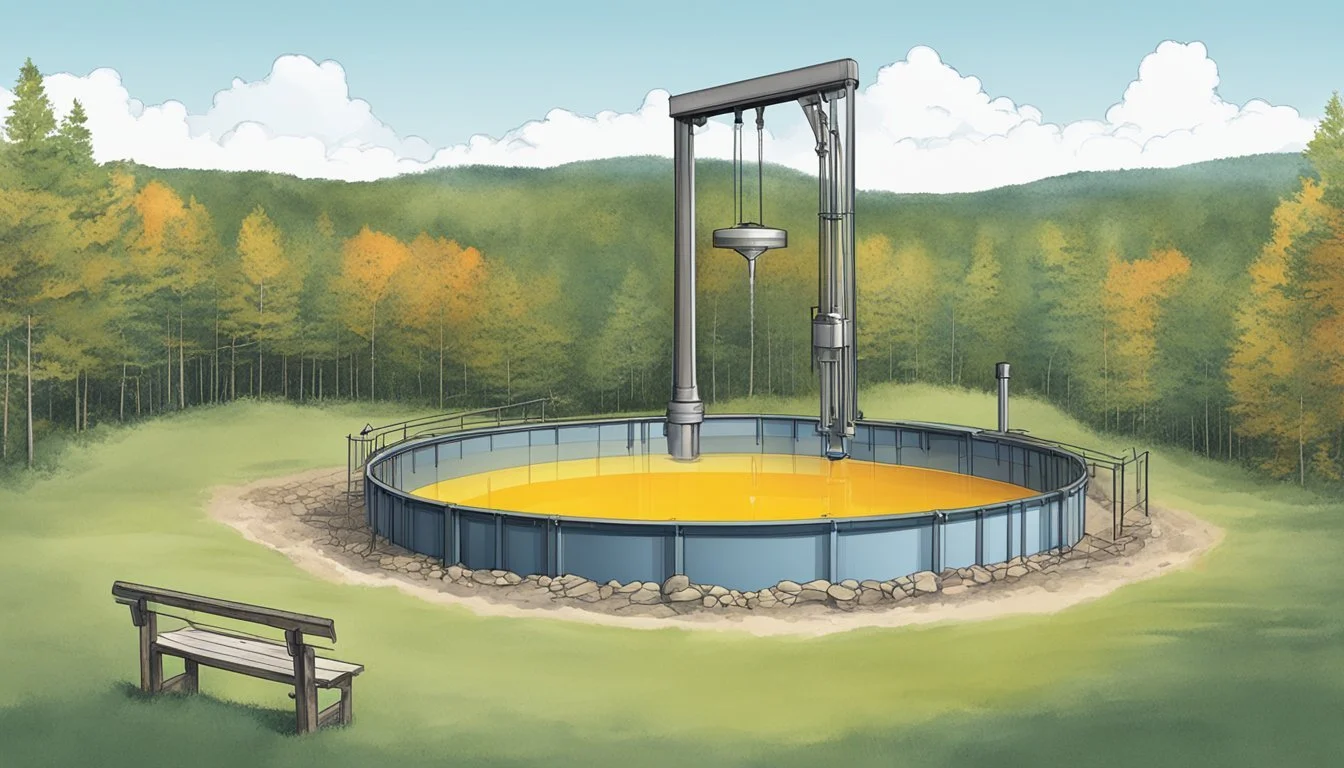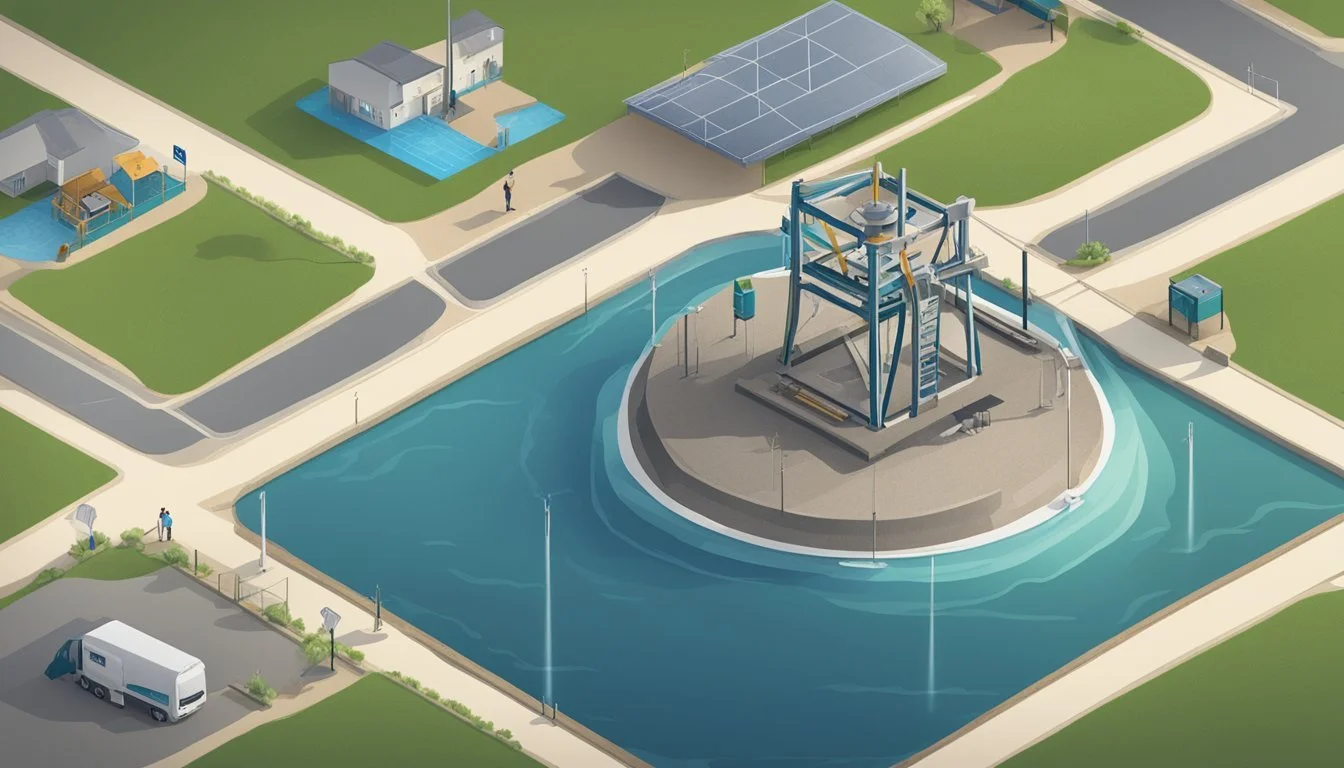New Hampshire Water Well Regulations
Understanding the Latest Guidelines
Water well regulations in New Hampshire are designed to ensure the safety and quality of the state's groundwater resources. Recognizing that nearly half of its residents rely on private wells for their water supply, the state has established specific guidelines and standards for water well contractors and pump installers. These regulations are crucial for safeguarding public health and for the protection of groundwater from contamination and depletion.
The New Hampshire Department of Environmental Services oversees these regulations and provides guidance for the proper construction and maintenance of water wells. The requirements cover various aspects, from licensing of contractors to the technical details of well construction. Strict adherence to these rules helps maintain the integrity of water wells and guarantees that groundwater resources remain a reliable source for residents.
Given the importance of such regulations, penalties are in place for violations, which underscores the commitment of the state to protecting both public health and its natural resources. These precautions ensure that New Hampshire's groundwater remains clean and sustainable for future generations.
New Hampshire Water Well Program Overview
New Hampshire maintains a comprehensive Water Well Program to ensure the protection and efficient management of the state's valuable groundwater resources. This program is vital for safeguarding both ground and surface water, and it is grounded in precise regulations and a robust licensing system.
Role and Responsibilities of the Water Well Board
The Water Well Board plays a critical role in the preservation of New Hampshire's groundwater. This entity is responsible for the licensing of well and pump contractors. They enforce standards for well construction, which is critical for preventing contamination and ensuring public safety. Their duties also extend to providing well construction records, which help in maintaining transparency and access to vital information about the state’s groundwater infrastructure.
Importance of Protecting Groundwater Resources
Protecting groundwater resources is integral to New Hampshire's environmental strategy. Groundwater serves as a crucial source of fresh water for the state's residents and ecosystems. Protection efforts include careful monitoring of water quality and the implementation of regulations that prevent the pollution of both ground and surface waters. This not only ensures a sustainable water supply but also supports the general health and welfare of New Hampshire communities.
Water Well Construction and Contractor Licensing
In New Hampshire, strict protocols ensure the safety and reliability of water wells. The state mandates comprehensive licensing for water well contractors, underscoring the importance of professional standards in the construction and maintenance of water systems.
Licensing Requirements for Water Well Contractors
In New Hampshire, any individual or company looking to engage in water well construction or the installation of water pumps must secure a license from the Water Well Board. This process involves verifying the applicant's eligibility and proficiency, including an assessment by the board. The regulatory body, composed of various stakeholders including NHDES representatives and licensed contractors, ensures that each licensed contractor meets the exacting standards necessary for the provision of safe and reliable water well systems.
Eligibility: Applicants must prove their expertise and experience in the field to be considered for licensing.
Application Review: The Water Well Board meticulously reviews applications to ensure compliance with state regulations.
Standards for Well Construction
The construction of water wells in the state must comply with specific standards to protect public health and preserve groundwater resources. It is vital that licensed water well contractors strictly follow these state-mandated protocols.
Construction Protocols: Drillers must adhere to conditions such as placing a 4x6-inch decal on their drilling equipment, as stated in the official requirements, which display the license validation year.
Regulatory Compliance: The standards outline in Section 482-B:5 of the New Hampshire water well statutes are legally binding and essential for water well contractors to operate within the state.
Regulatory Compliance and Well Completion Reporting
In New Hampshire, compliance with water well regulations and the accurate reporting of well completion are vital for safeguarding public health and managing the state's groundwater resources. These regulations ensure that water well contractors adhere to state laws and maintain the integrity of groundwater data.
Submission of Well Completion Reports
Contractors must submit a "Well Completion Report" to the Water Well Board following the construction of any new water well. State regulations mandate this submission process to include detailed information about the well's location, construction, and the aquifer characteristics. Ensuring this information is reported accurately enables the Water Well Board to monitor compliance and assess the impact on the state's groundwater resources.
Maintaining and Updating Well Records Quarterly
Maintaining comprehensive well records is not only a legal requirement but it's crucial for ongoing water resource management. These records must be updated quarterly; this practice helps to keep the water well inventory database current and reliable. It aids the New Hampshire Geological Survey and the Water Well Board in identifying and addressing any compliance issues swiftly, maintaining a high standard of public health and groundwater protection.
Well Location and Property Considerations
When selecting a well location in New Hampshire, property owners must adhere to strict regulations designed to protect water quality. Key considerations include setback distances from potential contaminants and the septic system, as well as the property owner's responsibility to maintain compliance.
Determining Setback Distance from Contaminants and Septic Systems
New Hampshire Department of Environmental Services mandates a minimum setback distance for water wells from potential contaminants. For instance, there must be a 75-foot protective radius for wells serving homes with up to five bedrooms, from both the property boundary and the septic system. Wells must be constructed to prevent contamination from sources at or near the ground surface.
Property Owner's Responsibilities
Property owners have the duty to ensure that the location of their well complies with state regulations. This includes maintaining the appropriate setback distances and keeping the well clear from septic systems and other contaminant sources. Documentation and adherence to these standards safeguard groundwater resources and public health.
Water Well Types and Specific Regulations
In New Hampshire, different types of water wells are subject to distinct regulations to protect groundwater resources. It's important to understand these regulations as they define the standards for well construction and maintenance.
Regulations for Artesian Wells
Artesian wells, which naturally allow water to flow to the surface without the need for pumping, are governed by regulations to ensure their integrity and the safety of the groundwater. The New Hampshire Water Well Board asserts specific construction standards, such as required materials and techniques, that must be adhered to. These standards ensure that the wells do not contaminate the aquifer and do not allow for surface water to enter the system, thus preserving the water quality.
Comparison with Other Types of Wells
In contrast to artesian wells, other well types such as drilled or dug wells have different construction requirements and standards. While artesian wells rely on natural pressure to bring water to the surface, drilled and dug wells often require pumps. To illustrate the variances, Table 1008-4 from a prior version of the state's regulatory code may provide clarification on protective well radii and other construction details. This table and associated regulations would outline the differences, such as those concerning protective radii from contamination sources, which can vary depending on the well type.
Frequently Asked Questions
This section addresses common inquiries regarding the protocols and requirements for water wells in New Hampshire, ensuring public health and environmental safeguarding.
How does one obtain a permit for drilling a well in New Hampshire?
Individuals seeking to drill a well must first select a licensed water well contractor in New Hampshire. The contractor is responsible for handling permits and adhering to all state regulations during the drilling process.
What is the required distance between a new construction and a water well in New Hampshire?
There are specific state-mandated setback distances that must be maintained from a well to septic systems or property boundaries to prevent contamination and protect groundwater resources.
What are the regulations for water well construction and maintenance in New Hampshire?
The state has established regulations to ensure that water wells are constructed and maintained in a manner that safeguards the public health and groundwater resources. Licensed contractors must comply with these regulations when constructing or servicing wells.
Are there any specific requirements for water testing of private wells in New Hampshire?
In New Hampshire, real estate transactions involving homes with private wells require sharing the most recent water quality test results, and there are additional guidelines on water testing that homeowners may need to follow regularly.
What is the typical depth range for water wells in New Hampshire?
The average depth for bedrock water wells in the state can range between 100 feet and 500 feet, although drilling can extend up to 1,000 feet depending on geological conditions and water table levels.
Where can I find a copy of the New Hampshire water well regulations documentation?
Documentation and detailed regulatory information can be accessed through the official New Hampshire Department of Environmental Services website, which provides guidance on water well construction, contractor licensing, and well maintenance requirements.








